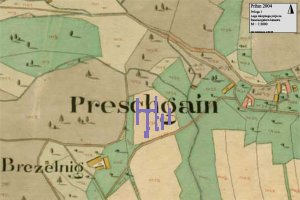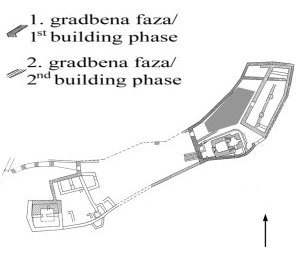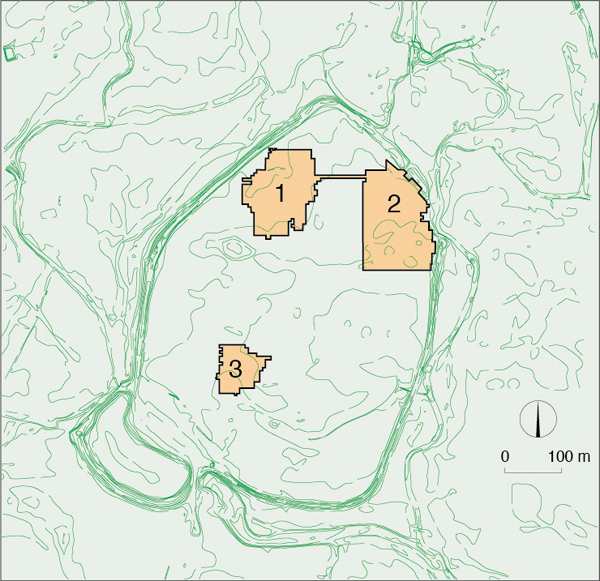|
PROJECTS
Early non-agrarian settlements as focal points of idea and knowledge transfer in mediaeval Europe
The different kinds of archaeological remains offer different possibilities
of understanding the past. While cemeteries are giving the records about
ideology, religion, society, the settlements are giving the informations about
everyday life and economy. In aim to understand the today's Europe we should
reserch its mediaeval roots. For understanding the broad historical processes
are of special importance the non-agrarian settlements, because they were the
focal points of idea and knowledge transfer in mediaeval Europe.
The project is focussed on three case studies, two in Slovenia and one in Czech Republic:
- Pržanj
- Mali grad v Kamniku
- Pohansko.

|
One of bigger new settlement-findspots in
Slovenia is early mediaeval settlement Pržanj (northern
part of Ljubljana, Slovenia). The craft properties are
its main particularity.
|

|
The second important findspot is Mali grad
in Kamnik (north of Ljubljana). The court of the local
magnate with the church and graveyard was built in the
10th century. In the 12th century the new feudal lords
were implanted there. The big amount of archaeological
material enables the study of far-reaching connections.
|

|
The political entity existing in the 9th century within the territory of modern Moravia,
the eastern half of the Czech Republic is the so called Great Moravia. One of the agglomerations
that stand out is Pohansko near Breclav, a site exceptional both
for its status and function within early mediaeval Moravia. Its
administrative-political function can be linked to the so-called court
of a magnate, interpreted as an emulation of the palatium, the centre of
Carolingian-Ottonian pfalzes, and was very likely one of the residences
of the Moravian ruler or his deputy. The central place generated many
outputs (including new knowledge and information) that radically
affected its surroundings. A very complex social structure developed
there. Pohansko could show the role of the non-agrarian settlements in
the transfer of idea and knowledge into the society of the early
mediaeval East Central and Eastern Europe.
|
The aim
is to strengthen the knowledge about the common fundaments of todays Europe.
The expected result of the project
is to throw light upon the following research questions:
- transfer of ideology (Christianity) from non-agrarian settlements,
- transfer of the knowledge of craft technologies from non-agrarian settlements and between them,
- non-agrarian settlements as redistribution points of imports and central points of long-distance trade,
- the role of the non-agrarian settlements in the development of the complex social structures.
Project coordinator
Andrej Pleterski
Researchers
Top
|
 Institute of Archaeology
Institute of Archaeology

